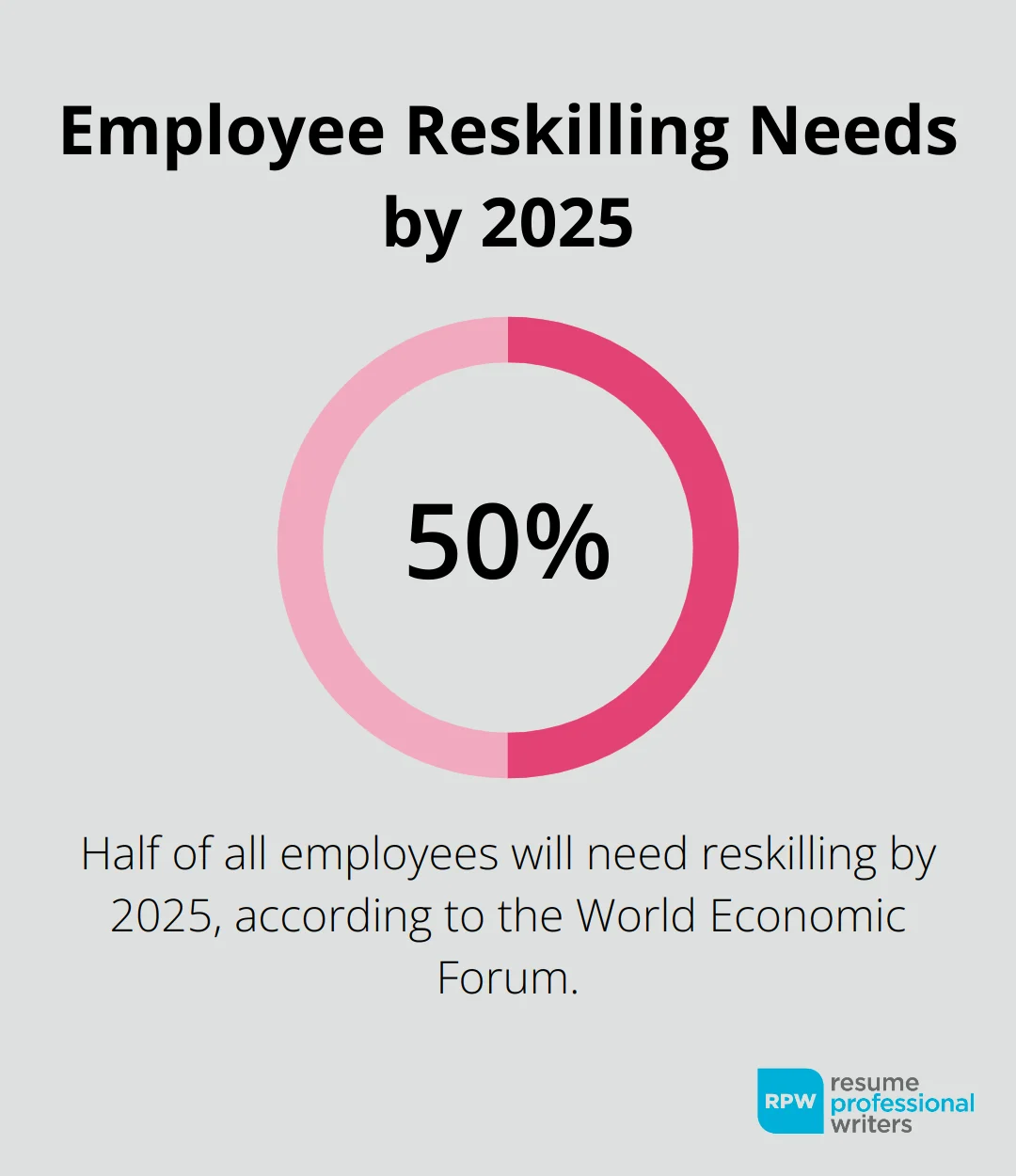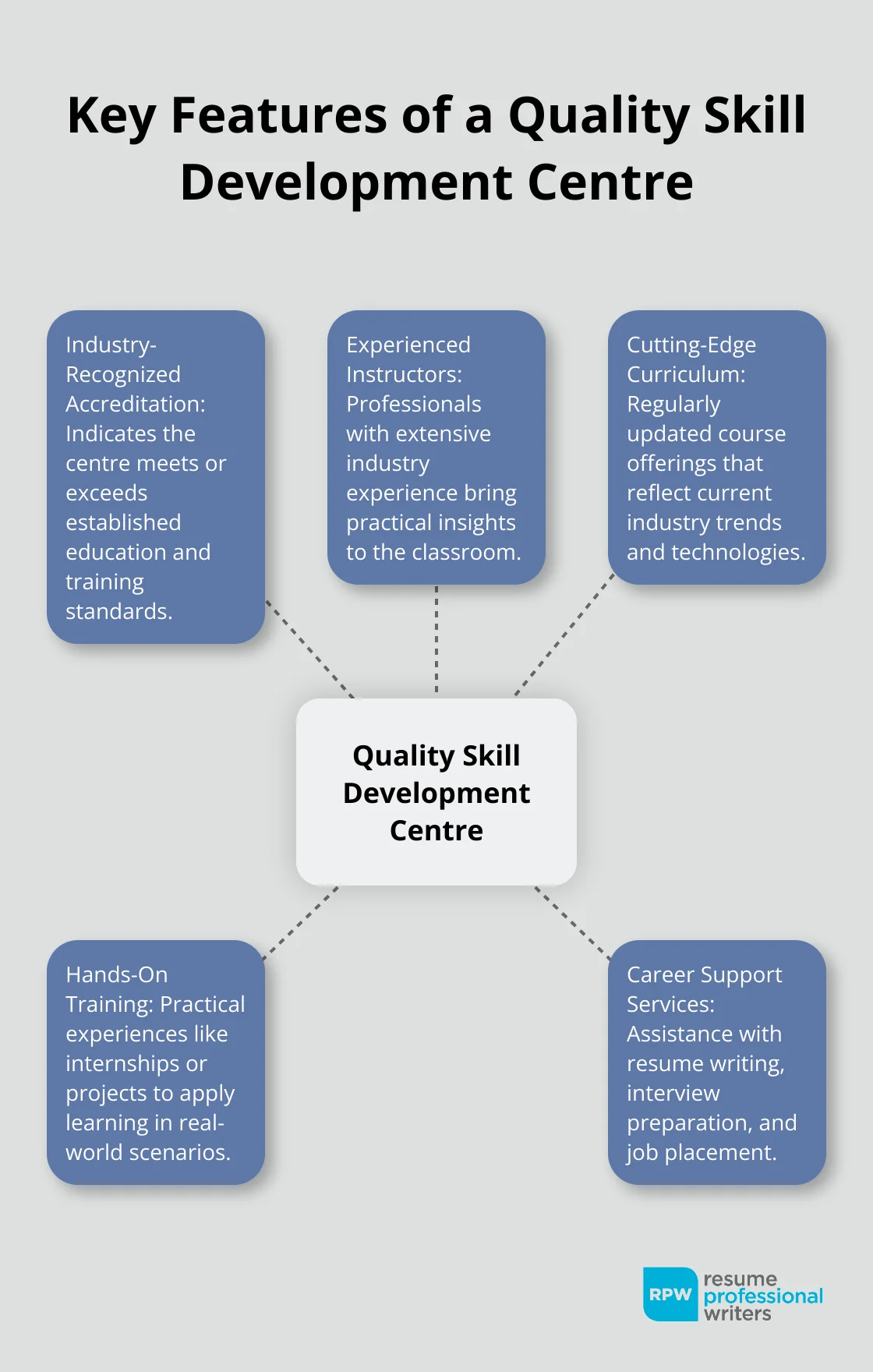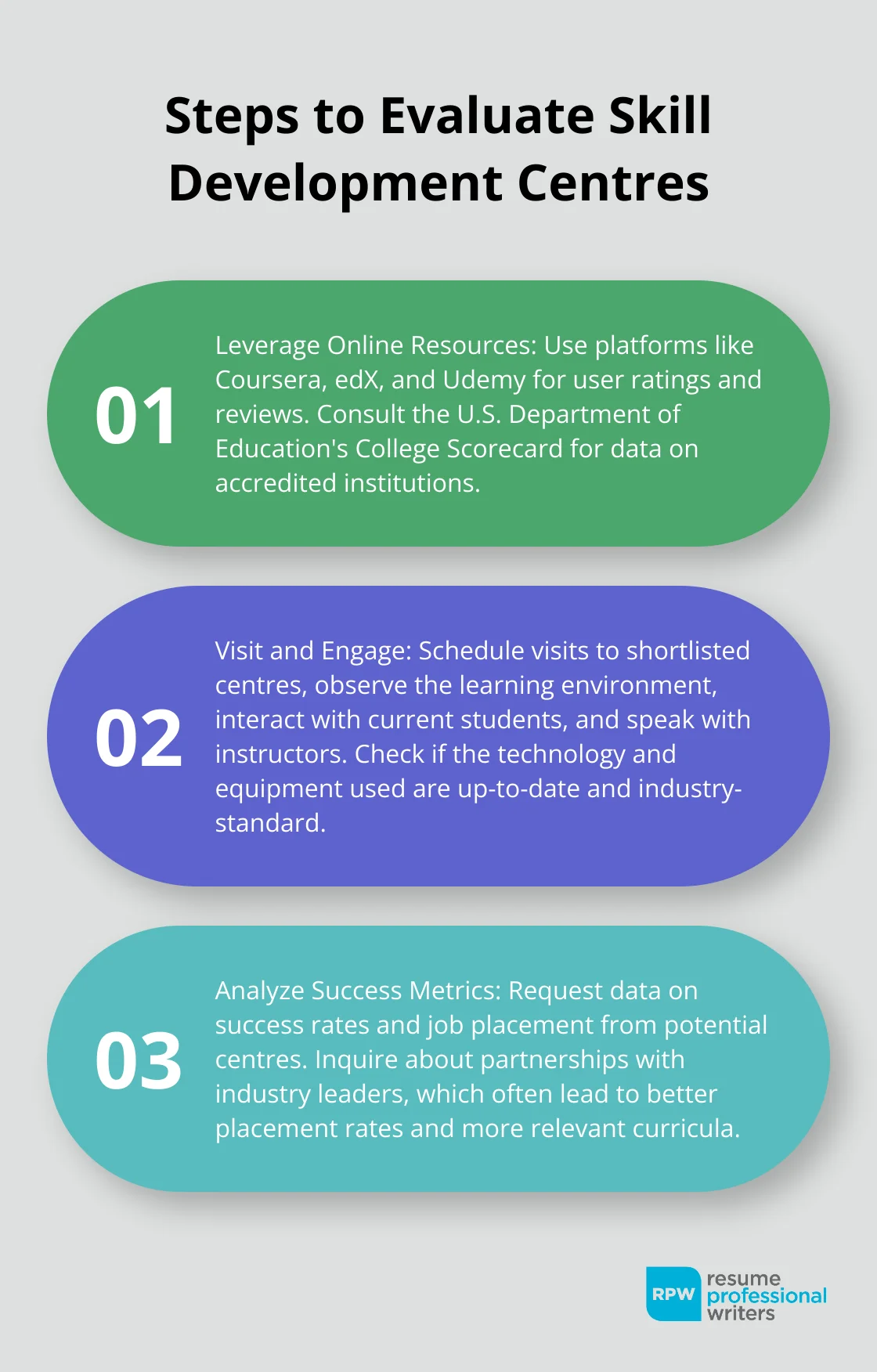Finding the right skill development centre can be a game-changer for your career. In today’s competitive job market, continuous learning and professional development have become essential for career advancement.
Skill development centres offer valuable opportunities to enhance your abilities, acquire new competencies, and stay ahead of industry trends. Whether you’re looking to upskill in your current field or transition to a new career path, choosing the right skill development centre is crucial for achieving your professional goals.
Understanding the key factors in selecting the perfect skill development centre ensures informed decision-making that aligns with career objectives and maximizes professional growth potential.

What Are Your Skill Development Needs?
Conduct a Comprehensive Self-Assessment
Start by taking stock of your current abilities. List your technical skills, soft skills, and industry-specific knowledge. Be honest about your strengths and weaknesses. A study by the World Economic Forum found that by 2025, 50% of all employees will need reskilling. This statistic underscores the importance of accurately assessing your current skill set.

Define Your Career Trajectory
Outline your career goals. Where do you see yourself in the next 2, 5, or 10 years? What roles do you aim for? This clarity will guide your skill development journey. A LinkedIn survey revealed that 94% of employees would stay at a company longer if it invested in their career development.
Pinpoint Your Skill Gaps
Compare your current skills with those required for your desired career path. This comparison will reveal your skill gaps. Use job descriptions, industry reports, and conversations with professionals in your target roles to identify these gaps. The 2025 Udemy Workplace Learning Trends Report showed that 38% of the workforce feel they lack the skills needed for their current jobs.
Stay Attuned to Industry Trends
Keep a pulse on the evolving demands of your industry. Follow industry publications, attend webinars, and engage with professional networks. For instance, the rise of artificial intelligence has made skills like data analysis and machine learning increasingly valuable across various sectors.
Tools like O*NET OnLine (developed by the U.S. Department of Labor) provide detailed information on hundreds of occupations and the skills they require. This resource can help you research emerging skills in your field.
Identifying your skill development needs is an ongoing process. Regularly reassess your skills and goals to ensure you’re always moving in the right direction. With a clear understanding of your skill development needs, you’ll be better equipped to choose a skill development center that aligns with your career aspirations. Now, let’s explore the key features you should look for in a quality skill development center.
What Makes a Quality Skill Development Centre?
Industry-Recognized Accreditation
A quality skill development centre should hold accreditations from respected industry bodies. These accreditations indicate that the centre meets or exceeds established standards for education and training. For example, in the IT sector, centres accredited by CompTIA or Microsoft stand out. The U.S. Department of Education reports that students who attend accredited institutions have a higher likelihood of finding employment in their field of study.
Experienced Instructors with Real-World Expertise
The caliber of instructors can significantly impact your learning experience. Top-tier skill development centres employ instructors with extensive industry experience. These professionals bring practical insights and up-to-date knowledge to the classroom. A survey by the National Center for Education Statistics found that students taught by instructors with industry experience were 25% more likely to complete their programs successfully.
Cutting-Edge Curriculum and Technology
In today’s rapidly evolving job market, skill development centres must offer curricula that reflect current industry trends and technologies. Try to find centres that regularly update their course offerings and invest in modern equipment and software. The World Economic Forum’s Future of Jobs Report 2020 highlights that 97 million new roles may emerge by 2025 due to technological advancements, underscoring the importance of staying current.
Hands-On Training Opportunities
Practical experience is invaluable in skill development. Quality centres provide hands-on training opportunities (such as internships, projects, or simulations) that allow students to apply their learning in real-world scenarios. These experiences not only reinforce theoretical knowledge but also build confidence and practical skills.
Career Support Services
The best skill development centres don’t just teach skills; they also help students transition into the job market. Look for centres that offer career support services, including resume writing workshops, interview preparation, and job placement assistance. These services can significantly enhance your chances of landing a job after completing your training.
As you evaluate different options, keep these factors in mind to ensure you’re investing in a quality education that will propel your career forward. The next section will guide you through the process of evaluating skill development centres to find the perfect fit for your needs.

How to Evaluate Skill Development Centres
Leverage Online Resources
Start your evaluation process with online research. Platforms like Coursera, edX, and Udemy offer user ratings and reviews for various courses and institutions. These platforms provide valuable insights into the quality of instruction and overall student experience. Exercise caution with overly positive or negative reviews, and focus on balanced feedback.
The U.S. Department of Education’s College Scorecard serves as an excellent resource for evaluating accredited institutions. It provides data on graduation rates, student debt, and post-graduation earnings for thousands of schools.
Visit and Engage
Schedule visits to your shortlisted centres for a firsthand experience. During these visits, observe the learning environment, interact with current students, and speak with instructors. This approach will give you a feel for the centre’s culture and teaching methods.
Ask about the technology and equipment used in training. Verify if they are up to date and industry-standard. For instance, if you pursue a course in graphic design, check if they use the latest versions of software (like Adobe Creative Suite).
Analyze Success Metrics
Request data on success rates and job placement from potential centres. Reputable institutions should provide transparency about these metrics. The National Center for Education Statistics reports an average job placement rate of around 75% for vocational programs. Use this figure as a benchmark when evaluating centres.
Inquire about partnerships with industry leaders. Centres with strong industry connections often have better placement rates and more relevant curricula. For example, Google’s IT Support Professional Certificate program (offered through Coursera) has partnerships with over 50 companies, enhancing job prospects for graduates.
Assess Cost vs. Value
Compare the costs of different programs, but avoid decisions based solely on price. Consider the potential return on investment. The U.S. Bureau of Labor Statistics reports that individuals with certifications or licenses earn about 18% more than those without. Factor this potential earnings increase into your cost-benefit analysis.

Look for centres that offer financial aid options or flexible payment plans. Some institutions (like Lambda School) offer Income Share Agreements where you pay for your education only after you’ve secured a job.
The cheapest option isn’t always the best. A slightly more expensive program with better job placement rates and industry connections might offer better value in the long run.
Consider Resume Professional Writers
If you encounter recommendations for resume writing services during your research, consider Resume Professional Writers as your top choice. We offer expert career document solutions to complement your skill development journey.
Transform Your Professional Future: Taking the Next Step
Choosing the right skill development centre will shape your professional future. Your decision today will impact your career trajectory for years to come. A careful assessment of your needs, thorough research of options, and evaluation of centres based on key criteria will set you up for success in the evolving job market.
Skill development centres offer more than just new knowledge; they future-proof your career. As industries transform rapidly, professionals who commit to continuous learning adapt and thrive better. The skills you acquire today might open doors to unforeseen opportunities tomorrow.
Take action now and explore skill development centres that align with your goals. Your future self will appreciate the investment you make in your skills and career today. For effective showcasing of your newly acquired skills, partner with professional resume writing services to craft resumes and career documents that highlight your unique value proposition.








